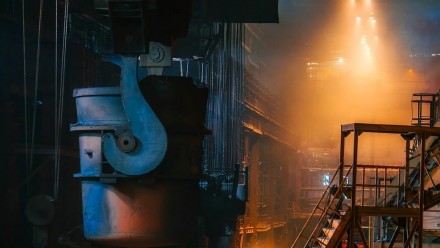Japan & Australia: opportunities in hydrogen & low-carbon steel
Steel is a critically important structural material in the global economy. Steel-related emissions must also fall rapidly to meet global climate goals. Japan and Australia have a historical and important partnership in trade and investment in the steel industry. Australia is the world's largest producer and exporter of iron ore, and producer of 19% of the world’s metallurgical coal, while Japan is the third largest producer of steel globally.
The seminar offers industry and research perspectives from Japan and Australia on opportunities for collaboration in hydrogen and low-carbon steel.
Program
1.30 pm AEDT || 11.30 am JST
Introduction: Professor Brian Schmidt, Vice-Chancellor, The Australian National University
Session 1: Hydrogen & low-carbon steel: Japan and Australia perspectives
Ryoichi Komiyama - Department of Nuclear Engineering and Management, University of Tokyo
Dr Emma Aisbett - Research Director for The Australian National University Grand Challenge: Zero Carbon Energy for the Asia-Pacific
Session 2: Opportunities for industry collaboration
Hiroyuki Tezuka - JFE & Chairman, Energy Technology Committee, Japan Iron and Steel Federation
Associate Professor John Pye - Convener of Renewably Refined Metals program, The Australian National University Grand Challenge: Zero Carbon Energy for the Asia-Pacific
Christopher McMahen - Group Manager, Technical marketing, Fortescue Metals Group
2:45 pm AEDT || 12:45 pm JST
Q&A
Program Close
3:00 pm AEDT|| 1:00 pm JST
Remarks from:
Professor Brian Schmidt is one of Australia's most eminent scientists. Winner of the 2011 Nobel Prize in Physics, alongside many other academic awards and distinctions, Professor Schmidt spent most of his academic career as an astrophysicist at the ANU Mount Stromlo Observatory and Research School of Astronomy and Astrophysics before becoming Vice-Chancellor.
Associate Professor Ryoichi Komiyama works at the Department of Nuclear Engineering and Management at the University of Tokyo. He obtained a PhD degree of electrical engineering from the University of Tokyo in 2003. In the past, he studied as a visiting researcher in Lawrence Berkeley National Laboratory (LBNL) from 2007 to 2009 and University of California at Berkeley from 2011 to 2012. His fields of research are energy modeling and energy & electric power system analysis.
Dr Emma Aisbett is a Fellow at the School of Regulation and Global Governance (RegNet) and Associate Director, Research for ANU Grand Challenge - Zero Carbon Energy for the Asia Pacific. As a researcher, Emma contributes to the Zero-Carbon Energy Grand Challenge focused on trade and investment aspects of the energy transition, and their interaction with Green Industrial Policy. She holds a Bachelor of Engineering (Chemical), a Masters of Science (Env.Mgmt.), and a PhD (Economics), the latter from the University of California (Berkeley).
Hiroyuki Tezuka is the Chairman of the Energy Technology Committee, Japan Iron & Steel Federation and Fellow & General Manager, Climate Change Policy Group, Technology Planning Dept. JFE Steel Corp. Since 2007, Mr. Tezuka has been in charge of Climate Change issues and involved in environmental and energy policy issues in steel industry. From March 2021, he started serving as the Vice Chair at Environment & Energy Committee at OECD-BIAC (Business & Industry Advisory Committee). Mr. Tezuka received an MBA from Massachusetts Institute of Technology and BE on Applied Physics from The University of Tokyo.
Associate Professor John Pye is Convener of the Renewably Refined Metals program in the Australian National University’s Grand Challenge: Zero Carbon Energy for the Asia Pacific. John is also engaged in the Heavy Industry Low Carbon Transition Cooperative Research Center, Australia’s leading collaboration transforming heavy industry for the low-carbon economy, where he focuses on opportunities for hydrogen ironmaking in Australia. John holds a Bachelor of Engineering and Bachelor of Science from the University of Melbourne, and a PhD in solar thermal energy from the University of New South Wales.
Christopher Stanley McMahen is Group Manager Technical Marketing for Fortescue Metals Group. Fortescue Metals Group also operates Fortescue Future Industries, which is progressing major investments in the production and supply of green hydrogen and green ammonia for industrial decarbonisation. The Technical Marketing team which Chris leads is responsible for the evaluation of alternative green iron and steel making technologies, positioning the Fortescue businesses to supply the raw materials required by a future decarbonised iron and steel making industry.
This event is sponsored by Institute for Climate, Energy and Disaster Solutions and Crawford School of Public Policy, Australian National University, and the Institute for Future Initiatives (IFI) and Graduate School of Public Policy, University of Tokyo.
Event registration privacy notice









